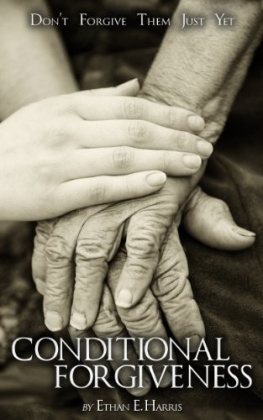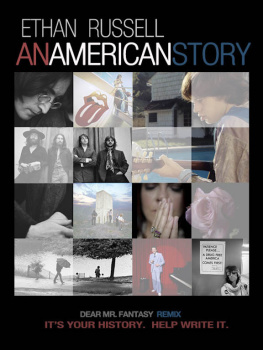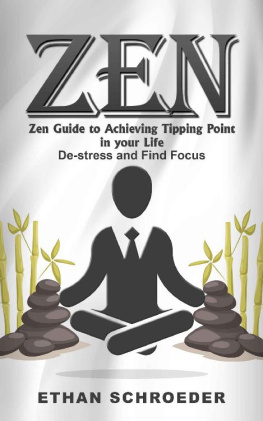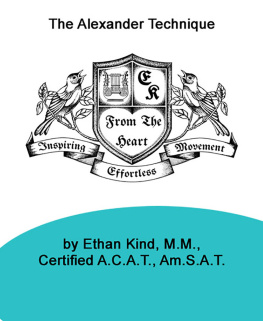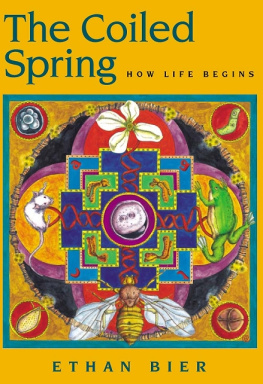Ethan E. Harris - Left by the Indians: Story of My Life
Here you can read online Ethan E. Harris - Left by the Indians: Story of My Life full text of the book (entire story) in english for free. Download pdf and epub, get meaning, cover and reviews about this ebook. publisher: Ethan E. Harris, genre: Home and family. Description of the work, (preface) as well as reviews are available. Best literature library LitArk.com created for fans of good reading and offers a wide selection of genres:
Romance novel
Science fiction
Adventure
Detective
Science
History
Home and family
Prose
Art
Politics
Computer
Non-fiction
Religion
Business
Children
Humor
Choose a favorite category and find really read worthwhile books. Enjoy immersion in the world of imagination, feel the emotions of the characters or learn something new for yourself, make an fascinating discovery.

- Book:Left by the Indians: Story of My Life
- Author:
- Publisher:Ethan E. Harris
- Genre:
- Rating:3 / 5
- Favourites:Add to favourites
- Your mark:
- 60
- 1
- 2
- 3
- 4
- 5
Left by the Indians: Story of My Life: summary, description and annotation
We offer to read an annotation, description, summary or preface (depends on what the author of the book "Left by the Indians: Story of My Life" wrote himself). If you haven't found the necessary information about the book — write in the comments, we will try to find it.
Left by the Indians: Story of My Life — read online for free the complete book (whole text) full work
Below is the text of the book, divided by pages. System saving the place of the last page read, allows you to conveniently read the book "Left by the Indians: Story of My Life" online for free, without having to search again every time where you left off. Put a bookmark, and you can go to the page where you finished reading at any time.
Font size:
Interval:
Bookmark:
| Left by the Indians: Story of My Life |
| (2012) |
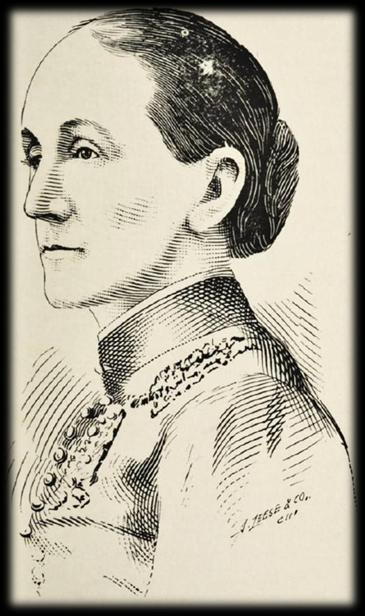 |
We fully expected to overtake a train that was a short distance ahead which got through all right except the one man above mentioned, who left the train to go after some strayed sheep, and was then killed by the Indians.
Having failed to overtake them, we were left to our sad fate in spite of all we could do.
There was one family which I cannot forbear to make special mention of, and that is the family of Mr. Myers.
The reader will recollect that I spoke of them in the beginning of this narrative. There were seven in the family, father, mother, and five children, and strange as it may seem every one of them were spared, and reached the fort in safety. Mr. Myers, in answer to the question asked him how they all happened to get through, when other families were entirely annihilated, answered. "It was prayer saved my family," but I can say that my idea is that extreme selfishness had more to do with their being saved than prayer. The hardship of gathering fuel and subsistence was not shared by Mr. Myers' family. He said they were not able. Even the task of washing for their baby was allotted to me, and often when we would go out after pusley, rosebuds, and such other vegetation as we could find, which we could eat, and leave Mr. Myers praying. I suppose in a selfish way, for his own family, in camp, instead of helping in our hardships, on our return the other children would cry and beg for something to eat and say the Myers family had been eating fish, or whatever we had stored away for rations, for we had to allow each one just so much at a meal. Perhaps the good Lord, who is the searcher of all hearts, heeded his selfish prayers, but I would quicker believe that shirking duty and stealing from others was what saved the Myers family.
After I arrived at Walla Walla, Washington Territory, I stayed with the family of Lieutenant A. J. Anderson until my cousin came for me from Salem, Oregon. It was the Lieutenant that rescued us at Owyhee River near old Fort Boise. They were very kind to me. Mrs.
Chase and her little girl stayed at the home of Captain Dent. He was a brother-in-law of U. S. Grant, and captain of the infantry. They were there when I left.
It was now about the middle of December, 1860. Cousin took me to his sister's who had married Mr. T. J. Pomeroy. My cousin's father, Edward Trimble, was killed on the plains in 1846 by the Indians. From Salem I went to Linn Co., Oregon, to my only relatives in Oregon that I had ever seen before, Uncle Pierce II. Trimble and his family moved to Oregon in 1853 from Walworth Co., Wisconsin. With them I made my home part of the time, and part of the time with Mr. W. W. Allingham's family, and went to school. They were very kind people; in fact, all I met with in the west were kind to me and often tried to help me to forget my troubles. I shall always hold in grateful remembrance the kindness of the people in Washington Territory and Oregon. They were so liberal in making up money for us. My uncle took what was raised for me and bought sheep with it for me. I had twenty-one head. Uncle gave me a cow, and Mr. John Clark gave me another. So I had plenty of stock.
My schooling did not cost me nor my uncle one cent, as the people paid for it. Neither did their kindness stop here. They often came and took me along to entertainments that were going on in the country. The best horse and saddle were always provided for me. They wanted me to learn to ride on horseback, as that was their mode of traveling there. I soon learned to ride, and often went with the young people to church and singing school.
Sometimes eight or ten couple of us went together. The country was beautiful to ride over, and the scenery was lovely to look at. When the snow was three or four feet deep in Wisconsin, I picked wild flowers in Oregon. Everything around me, so far as nature was concerned, was charming to behold. If father, mother, brothers, and sisters had only been with me, my joy would have been complete; but they were gone, and with all that beauty spread before me, I could not help but turn my longing heart toward them, and weep in my loneliness. While in the schoolroom trying hard to learn, the scenes of the past would come up before me, and it seemed that my heart would break. Nobody knew how hard it was. Many times I was happy with my young friends, and tried to be so; but night would come on, and I would pray for dear mother to come and take me, and cry myself to sleep. My feet were so injured from walking after the fight, having no shoes, and from the cold, I could not always walk to school. Then I rode on horse back, and picketed my horse out till I returned home. I still suffer much pain in my feet.
I lived in Linn Co. about two years, and then went forty miles to Monmouth, Polk Co., Oregon, with a lady I had met a few times. She had me go to the Christian College in that place. I went two terms, and then came back to Linn Co. in the spring. The next fall (Nov. 12th, 1863), Mr. John M. Whitman and I were united in marriage. Mr. Whitman was born September 8th, at Monmouth, Ill. When he was eight years old his parents moved to Monmouth, Oregon, taking him along. His parents still live there. Here we began housekeeping, and remained till the following July. During this time I received a letter from my mother's uncle, Rev. Aaron Payne of Yamhill Co., Oregon. His brother was a Quaker preacher, and Blackhawk's first victim. They captured him on the way to his appointment. He carried no arms, according to the Quaker custom. The Indians said he was a brave man to travel there in this way; but even this heroic spirit did not prevent them from taking his defenseless head and carrying it on a pole. Rev. A. Payne had been a widower since 1847. His family had all died with the consumption, except one son. He wanted me to come and live with them. He came twice to see me before I was married, and if possible to get me to go and live with a family near them and go to school. The first time he came he talked to my uncle, but did not mention it to me, lest I should become uneasy. Uncle did not want me to go.
After we were married we went and lived on his place two years, and he lived with us. Then we moved to Tillamook Co. on the coast, about fifty miles distant, to another place of his, taking with us some of his stock with our own. We took a preemption joining his place for ourselves, and got along well. Every turn we made seemed to be in the right direction, for we made money fast, and were happy. We lived in that part five years. To get there we had to cross the Coast Range of mountains on horseback, or go around on the water. We usually preferred to cross the mountains. Those mountains are covered with the finest timber that can be found. The timber in Wisconsin looks like shrubbery beside those great trees. The fruit was abundant and delicious. The climate was very mild. They hardly ever had snow to lie long enough to have a sleigh ride. It is a great place for fishing and boating. We used to have some good times with our neighbors, sailing and rowing. Three or four couples of us often went to the beach, and camped all night. Some would take their bathing suits along, and go out in the water as the tide came in, and let the waves roll over them. We often walked miles on the beach, dug clams, gathered shells, etc. to pass the time away, and amuse ourselves. When we got tired we would return to our campfire and sing songs, and visit to make life as pleasant as possible. It was amusing to see some strangers trying to go out with a boat on the tide. Not being aware that the water was so shallow, they sometimes neglected till the tide left them on a clam bed or mudflat. There they might play themselves for six hours, until the tide would return and bring them back. As I looked on those majestic mountains, the dark, briny ocean, and the blue, ethereal sky; I thought of Him, who made the mountains rise;
Font size:
Interval:
Bookmark:
Similar books «Left by the Indians: Story of My Life»
Look at similar books to Left by the Indians: Story of My Life. We have selected literature similar in name and meaning in the hope of providing readers with more options to find new, interesting, not yet read works.
Discussion, reviews of the book Left by the Indians: Story of My Life and just readers' own opinions. Leave your comments, write what you think about the work, its meaning or the main characters. Specify what exactly you liked and what you didn't like, and why you think so.

